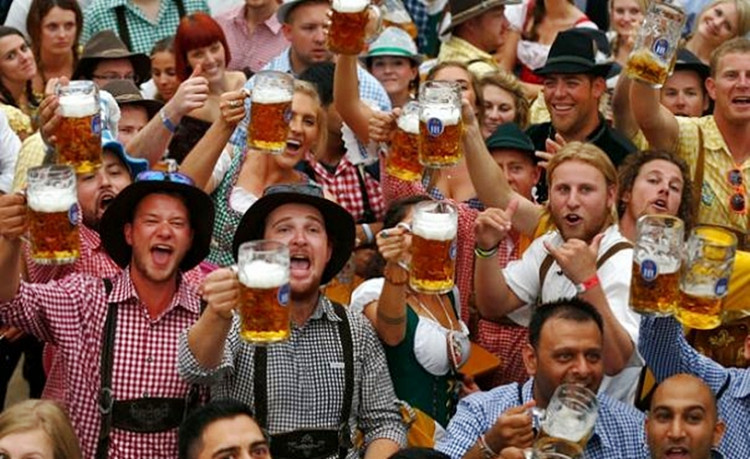With the world-famous Oktoberfest beer festival in Munich, Germany opening Sept. 22, Germans will have to contend with a non-typical German problem - beer consumption has kept falling in Germany while fewer and fewer Germans are drinking beer.
Together, these twin headaches mean it won't all be fun, boisterous singing and laughter at Oktoberfest 2018, especially for Germany's many breweries.
Germany is the world's fifth-largest beer market, with a total consumption more than twice as high as in the UK. It's also the world's fourth biggest beer producing nation. And what is the world's top beer-producing country? It's China, which has held that spot since 2002.
But Oktoberfest is undoubtedly the world's most famous beer festival. It's also the largest "Volksfest" (People's Fair) in the world. There were 6.2 million visitors to Oktoberfest 2017 compared to 5.6 million in 2016. Oktoberfest 2017 saw the consumption of around 7.5 million liters of beer, as well as 127 oxen and 59 calves.
Some in Germany's beer industry doubt the 2017 numbers for visitors and amount of beer consumed will be eclipsed this year. Fully three-fourths of all visitors to Oktoberfest are Germans and fewer Germans are drinking beer, Oktoberfest notwithstanding.
Beer industry data shows that demand is falling in Germany, a country with more than 6,000 different brands of beer. Domestic beer consumption has plunged by more than a quarter since the early 1990s with no recovery in sight.
Consumption per head or per capita peaked in 1976 and has been falling ever since. The Czechs remain the world's leading beer guzzlers.
The steep plunge in beer consumption has left mass-market German brewers suffering from overcapacity. The result is a long-running and ruinous price war no one seems to be winning. And as a consequence of the need to sell, more than two-thirds of all the beer sold in German supermarkets are offered at a discount.
A number of Germany's big breweries are hurting badly. Warsteiner has had to lay-off people. Workers at the Holsten brewery in Hamburg went on strike a few months ago to protest plans to cut almost a fifth of the company's jobs.
Another problem for the beer industry: Germany's population is getting older. The young, virile men that drink steins and steins of beer are a vanishing breed. Lifestyles also focus more on healthy foods - and drinks.
Uwe Riehs, chief marketing officer of Krombacher, Germany's largest beer brand, noted that a 44-year-old today drinks less beer than a 44-year-old did 20 years ago."






